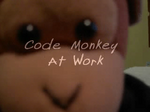We Don't Have a Search Beast; We've Got an Ego Vacuum
On Wednesday morning at ad:tech in Chicago, I hit Managing the Search Beast, the first of the several SEM seminars I masochistically slated myself to take.
It was one of those seminars in which a speaker like David Doucette feebly tries pushing product (the Fairmont Hotel and Resorts) while the audience, every member of which thinks it's smarter than he, attacks with questions that, if you've ever worked in SEM, you know nobody knows the answers to.
And they're simple questions: "How did you track that social networking effort?" and "How do you prevent against click fraud?"
The crickets chirp in response. It's not that there aren't any answers; it's that marketing and sales guys rarely have a true sense of what's happening on the back-end when it comes to SEO. They pull the numbers from IT and that's the deepest it gets.
This is one reason why search engine marketing (poetically) highlights the growing tensions between marketing and tech.
You think Boyz n the Hood was scary? You've probably got similar tensions running between creatives and devvies - except without guns, and possibly more animosity.
With technical innovation moving so quickly, and social marketing piggy-backing it all the way, two elitist worlds are suddenly forced to address each other. To improve a site's organic search status, content offering and even properly implement pay-per-click programs, a marketer is forced to face the limitations presented by its IT department.
In kind, IT must also see the value in the marketing department's vision if it is going to assist in the necessary implementation of tags, SEO efforts or sponsored search conversion tracking.
The Fairmont made significant strides in the last few years, bringing its chains from a handful of countries to about 11, expected to hit 20 in the two years. In-house, the hotelier made a lot of changes: changing CMS providers, converting to .NET and launching a "fairly extensive summer campaign."
But major problems occurred when the technology team didn't feel "sufficiently engaged."
Tech devs are no less integral to the bigger picture of branding and service than marketers. Fairmont understood this. In order to help ease tensions, it opted for a decentralized CMS model in which people manage their own content.
In theory, that means content creators can do their own thing while IT tweaks the back-end in relative (and solitary) bliss. But building a house divided is just not smart.
If marketers develop a working sense of how technicians think, acknowledging limitations (and possibilities) associated with a website's infrastructure, they are not by any means less creative people. Rather, they're more effective strategists that learn to develop scalable and well-founded marketing models.
And when IT sees that marketers are working in just as tactical a field as their own, code-junkies and technicians may grow more open to exploring new possibilities that may otherwise be left rotting in the queue.
The strongest marketers and developers today are people who can play both sides. That's part of what's made Google such an unstoppable force: It's a company that consists of tech-oriented people, plopped down in a creative atmosphere and forced to discover the possibilities.
"In this industry you can pick up new clients pretty easy. But the key is how well you can service the clients," mused Jeff Pruitt of SEMPO and iCrossing.
Step one to best servicing your clients: Ensuring your creative and technical employees are living in relative harmony - and learning from one another.
Multi-faceted employees can in many ways make a more resilient company. Just ask Larry and Sergei.
Image courtesy of SnowedIn.net.



Comments
Great post. I'd add that I've seen first hand the results of not understanding this dynamic when pitching business. Some agencies come in and pitch straight to the marketing folks, waving their hands at the "back-end" mechanics as if they were some sort of plumbing - necessary but nothing to spend time on unless you must. Others come in and talk to IT, touting their technical superiority but not engaging the marketing folks with any consumer insight or creative iideas. These shops, usually interactive/digital only, can also act with an arrogance towards marketers that loses them the business. So, actually, you can't pick up new clients very easily, especially the high revenue clients we all want - not unless you understand how to speak both tech and marketing.